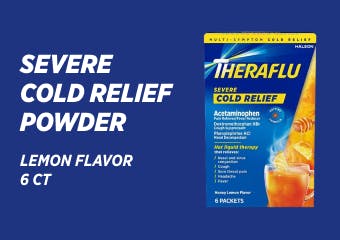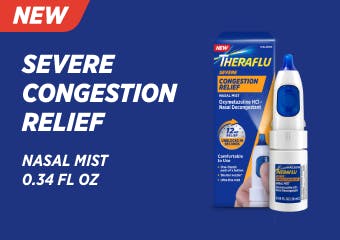If you experience nasal congestion at night, it may interrupt your sleep, causing you to toss and turn or reach for tissues constantly. Learn why your stuffy nose feels worse at night and how to treat a blocked nose before bed.

Key Takeaways
- Nasal congestion often feels worse at night as the effects of gravity are mitigated when you lie down.
- Common causes of nasal congestion include allergic and non-allergic rhinitis, which are triggered by allergens, irritants, dry air or illness.
- To relieve nighttime congestion, try using a humidifier or HEPA filter, elevating your head at night and maintaining an allergy-free bedroom.
Why Does Nasal Congestion Get Worse at Night?
Gravity helps your sinuses drain while you’re standing upright.1 When you lie down, the effects of gravity are mitigated, preventing proper drainage and making your nasal congestion worse.1
Another reason for your nasal congestion at night could be allergies.3 Your pillows, bedding and mattress may be harboring allergens that contribute to a stuffy nose.3 In addition, letting pets into your bedroom or sleeping in a carpeted room can worsen nighttime allergies and congestion when you lie down.3
Causes of Nasal Congestion
Your nasal passageways are made up of soft tissue containing a maze of small blood vessels.1 In addition, a thin layer of mucus coats the inside of your nose to aid your body’s immune system and to keep your skin moist.1 When something irritates your nasal passageways, they start to swell up, leading to the feeling of nasal congestion.1 This inflammation slows the flow of mucus, causing it to build up and lead to a stuffy nose.1
How to Treat a Blocked Nose at Night
Relieve and prevent a stuffy nose at night to promote better rest with these tips.
Remove Allergens from Your Bedroom
Allergens can collect in various places in your bedroom, including your bedding, under furniture and on curtains.2 Dust regularly, wash your bedding frequently with hot water and use allergy covers on your mattress and pillows.2
In addition, avoid fabrics like carpet or heavy curtains that can harbor dust, pollen and pet dander.2 Instead, opt for hardwood floors and blinds that are easier to clean and more allergy-friendly.2 If needed, keep pets out of your bedroom and shower nightly to wash away allergens before you sleep.2
Use a Humidifier or HEPA Filter
Adding a HEPA filter to your heating and air conditioning ducts can reduce the number of allergens in your home.2 If your nasal congestion is due to dry air instead of allergies, add a humidifier to your bedroom to add moisture to the air or use a saline spray to keep your nasal passageways hydrated.1
Elevate Your Head with Pillows
Since lying horizontally can contribute to a stuffy nose at night, elevating your head with pillows can increase nasal drainage.1 While you may be tempted to lie in bed all day when recovering from a cold, sitting or standing upright can also prevent stuffiness.1 Lastly, light exercise can widen your nasal passages and make it easier to breathe.1
Try a Nasal Decongestant Spray
Using a nasal decongestant spray can help reduce your symptoms and soothe your nasal passages.1 Try Theraflu Severe Congestion Relief Nasal Mist for 12 hours of long-lasting relief from nasal congestion. It reduces swelling in the nasal passages to provide fast-acting relief from a stuffy nose. To relieve nasal congestion with an added cooling sensation, try Theraflu Severe Congestion Relief Nasal Mist + Cooling.





